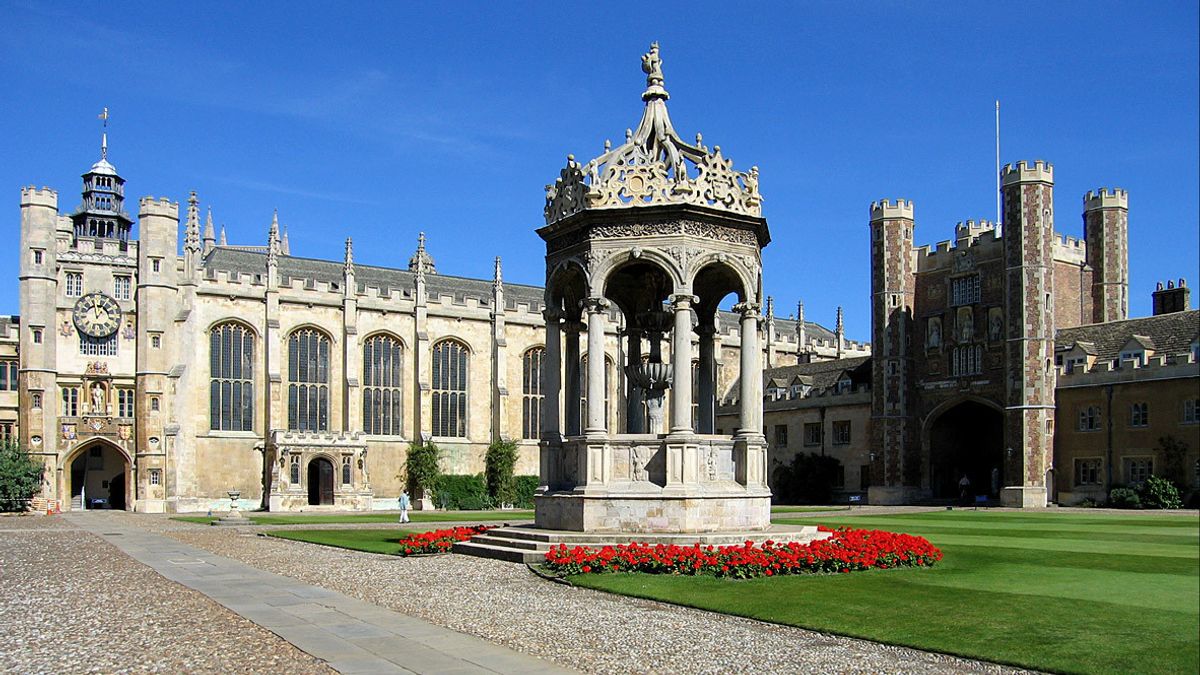JAKARTA - Cambridge University has cut off talks with the United Arab Emirates over a record £400 million collaboration, following claims about the Gulf state's use of controversial Pegasus hacking software, the university's vice chancellor said.
The deal, which was hailed in July as a potential strategic partnership, helping to solve some of the biggest challenges facing our planet, will include the largest donation of its kind in the university's history, spanning a decade and involving direct investment from the UAE in excess of £310 million.
But Stephen Toope, Cambridge vice chancellor said in an interview that no meetings or conversations with the UAE have now taken place following disclosures regarding Pegasus, software that can hack and secretly take control of mobile phones.
A university spokesman said it had approached the UAE and other partnerships "with an open mind" and "this has always been a very balanced assessment|, adding: "We will be reflecting over the next few months before further evaluating our long-term options with our partners." and the university community," quoted The Guardian Oct. 14.
The Guardian's Pegasus project revealed the leak of more than 50,000 phone numbers, believed to be linked to people with an interest in clients of NSO Group, the Israeli company behind Pegasus. The main government responsible for selecting the hundreds of UK numbers appears to be the UAE, the Guardian found.
"There were further revelations about Pegasus that really made us decide, this is not the right time to pursue this kind of ambitious plan with the UAE," Toope explained to student newspaper Varsity.

Asked if he would consider pursuing a deal in the future, Toope said, "No one will rush into this. There will be no secret arrangements being made. I think we will have to have strong discussions at some point in the future. Or we might decide that it's not worth raising again. I honestly don't know."
Toope said he had not met the ruling prince of the United Arab Emirates and had no meetings with anyone from that country. "There are relationships that exist at the university on a departmental and individual academic level, but there is no talk of a big project," he said.
"We recognize the risks in dealing with many countries around the world, but we think it's worth talking about."
News of a potential collaboration, with documents seen by the Guardian detailing the "co-image of the UAE and the University of Cambridge" and a new Gulf-based institution, led to protests over the prospect of financial ties to the monarchy infamous, for alleged human rights abuses, several institutions. democracy and hostility to the rights of women and LGBTQ+ people.
Talks of a partnership are supported by the university's internal body, despite concerns. But Toope's statement pointed to the UAE's alleged use of controversial hacking software that was responsible for ending the talks.
In July, shortly after the Cambridge-UAE partnership was announced, the Pegasus Project revealed more than 400 UK mobile numbers appeared in a list of leaked numbers identified by NSO government clients between 2017 and 2019. The UAE was identified as one of the 40 countries with access to Pegasus. , and the main country associated with the UK number.
The Cambridge-UAE project will include joint innovation institutes and plans to upgrade and improve the emirate's education system, as well as work on climate change and energy transition. "Are those things important enough to think about, that we might be able to reduce the risk? The answer: I don't know frankly," said Toope, who will step down later this year.
Dubai, an emirate city ruled by Sheikh Mohammed bin Rashid al-Maktoum, is also believed to be a client of NSO. The phones of Sheikh Mohammed's daughter Princess Latifa and his ex-wife Princess Haya, who fled the country and came to Britain in 2019, both appear in the data.
Last week a high court judge ruled that Sheikh Mohammed hacked Princess Haya's phone using the Pegasus spyware, in an unlawful abuse of power and trust.
Dubai did not respond to the Guardian's request for comment on Project Pegasus at the time. Sheikh Mohammed did not respond, although it is understood that he denied trying to hack into Latifa's or her friends' or associates' phones, or ordering anyone else to do so.
In several statements NSO said the fact that the number appeared on the leaked list did not at all indicate whether the number was targeted for surveillance using Pegasus. "The list is not a list of targets or potential targets for Pegasus," the company said. "The numbers on the list are not related to the NSO Group in any way."
The English, Chinese, Japanese, Arabic, and French versions are automatically generated by the AI. So there may still be inaccuracies in translating, please always see Indonesian as our main language. (system supported by DigitalSiber.id)












